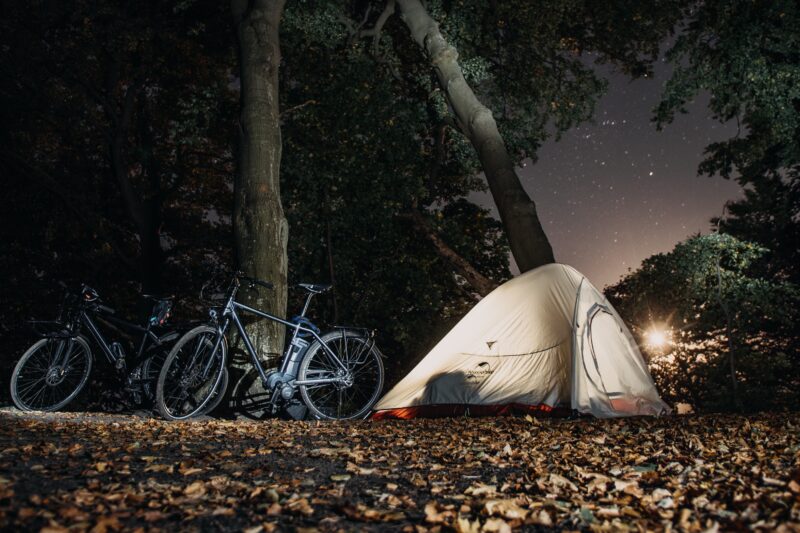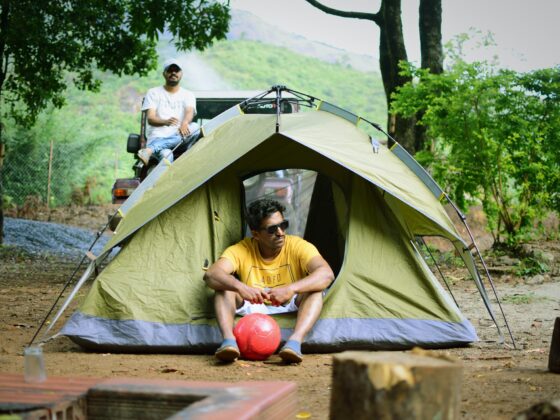Are you an adventure enthusiast looking to lighten your load on your camping trips? If so, then this guide to ultralight packing is for you. Packing light not only makes your camping experience more enjoyable but also allows you to move more easily and cover longer distances.
In this article, we will explore everything you need to know about ultralight packing for camping.
We will discuss the essential gear and equipment you should consider taking with you and tips and tricks for minimizing weight without sacrificing comfort or safety. From choosing the right backpack and sleeping bag to selecting lightweight cooking gear and clothing, we’ve got you covered. You will also learn about efficient packing techniques and strategies to optimize space and weight.
Whether planning a weekend getaway or a week-long hiking expedition, this guide will help you pack smarter, lighter, and more efficiently. Say goodbye to heavy loads and hello to the freedom of traveling light. Let’s dive in and discover the world of ultralight camping packing together.
What is ultralight packing?
Ultralight packing is a backpacking technique that focuses on minimizing the weight of your gear and equipment, allowing you to travel more comfortably and efficiently. The philosophy behind ultralight packing is to carry only the essentials and eliminate unnecessary items that add unnecessary weight to your backpack. By adopting this approach, you can enjoy the freedom of moving quickly and easily during your camping trips.
When it comes to ultralight packing, every ounce matters. The goal is to strike a balance between packing light and ensuring you have everything you need to stay safe and comfortable in the wilderness. It requires careful consideration of your chosen gear and a willingness to prioritize functionality and weight over unnecessary luxury items.
Benefits of ultralight packing for camping
There are several benefits to adopting ultralight packing for your camping adventures. Firstly, carrying a lighter backpack allows you to move more freely and cover longer distances without feeling weighed down. This opens up opportunities to explore more remote and challenging terrains, giving you a richer and more rewarding outdoor experience.
Secondly, ultralight packing reduces the strain on your body. Carrying heavy loads can lead to fatigue, muscle soreness, and an increased risk of injury. By packing light, you can minimize these risks and enjoy your trip with less physical discomfort.
Additionally, traveling with a lighter backpack means you can rely less on vehicles or pack animals for transport, enabling you to access more remote areas inaccessible to others. This allows you to experience the true beauty of nature and escape the crowds often found in more popular camping spots.
Ultralight packing essentials
Before embarking on your ultralight camping adventure, it’s important to understand the essential gear and equipment you should consider. While the specific items may vary depending on the duration and type of camping trip, a few key essentials should always be included in your ultralight packing list.
1) Backpack
Choosing the right backpack is crucial for ultralight camping. Look for a backpack that is lightweight, durable, and has a capacity suitable for your needs. Opt for a backpack made from lightweight materials such as nylon or Dyneema, as these materials offer a good balance between weight and durability. Additionally, consider the design and features of the backpack, such as the number of compartments and pockets, to ensure it meets your specific requirements.
2) Sleeping bag
A lightweight sleeping bag is essential for a comfortable night’s sleep during camping trips. Look for a sleeping bag specifically designed for backpacking and made from lightweight, compressible materials. Consider the sleeping bag’s temperature rating to ensure it is suitable for the conditions you will be camping in. Down-filled sleeping bags are often preferred for their excellent warmth-to-weight ratio. Still, synthetic options can be a more affordable and moisture-resistant alternative.
3) Shelter
Your shelter is one of the heaviest items in your backpack, so choosing a lightweight option is crucial. Consider using a lightweight outdoor tent, tarp, or hammock, depending on your preferences and the conditions you will be camping in. Look for shelters that are easy to set up, durable, and provide adequate protection from the elements. Consider the number of people the shelter can accommodate and whether it offers additional features, such as bug netting or a vestibule for gear storage.
4) Cooking gear
When it comes to cooking gear for ultralight camping, opt for lightweight and compact options. Consider using a lightweight stove, such as a canister stove or an alcohol stove, that is easy to use and has a high fuel efficiency. Look for cookware made from lightweight materials, such as titanium or aluminum, and consider multi-purpose items to minimize weight. Pack only the necessary utensils and accessories, such as a spork, a lightweight pot gripper, and a collapsible water container.
5) Clothing and footwear
Choosing the proper clothing and footwear is essential for staying comfortable and protected during camping trips. Pack lightweight, moisture-wicking clothing suitable for the weather conditions you will be camping in. Consider layering your clothing to accommodate temperature changes and pack versatile items that can be used for multiple purposes. Additionally, invest in a pair of lightweight, durable hiking boots or trail shoes that provide good traction and support.
6) Navigation tools
Having the right navigation tools can significantly impact your camping experience. Consider carrying a lightweight compass and a detailed map of the area you will be exploring. Consider using a GPS device or a smartphone with a reliable navigation app. Bring extra batteries or a portable charger to ensure your devices stay powered throughout your trip.
By carefully selecting and buying these essential items from any camping equipment store, you can significantly reduce the weight of your pack without compromising on functionality or comfort.
Conclusion
Ultralight packing for camping can significantly enhance your outdoor experience by allowing you to travel more comfortably and efficiently. By carefully selecting lightweight gear and equipment, prioritizing functionality over unnecessary items, and adopting efficient packing techniques, you can reduce the weight of your backpack without compromising comfort or safety. Remember to constantly assess the specific requirements of your camping trip and adjust your packing list accordingly.
Embrace the freedom of traveling light and enjoy the beauty of nature without the burden of a heavy backpack. Incorporate the tips and strategies mentioned in this guide, and you’ll be well on your way to becoming an ultralight camping expert.
Happy packing and happy camping!


